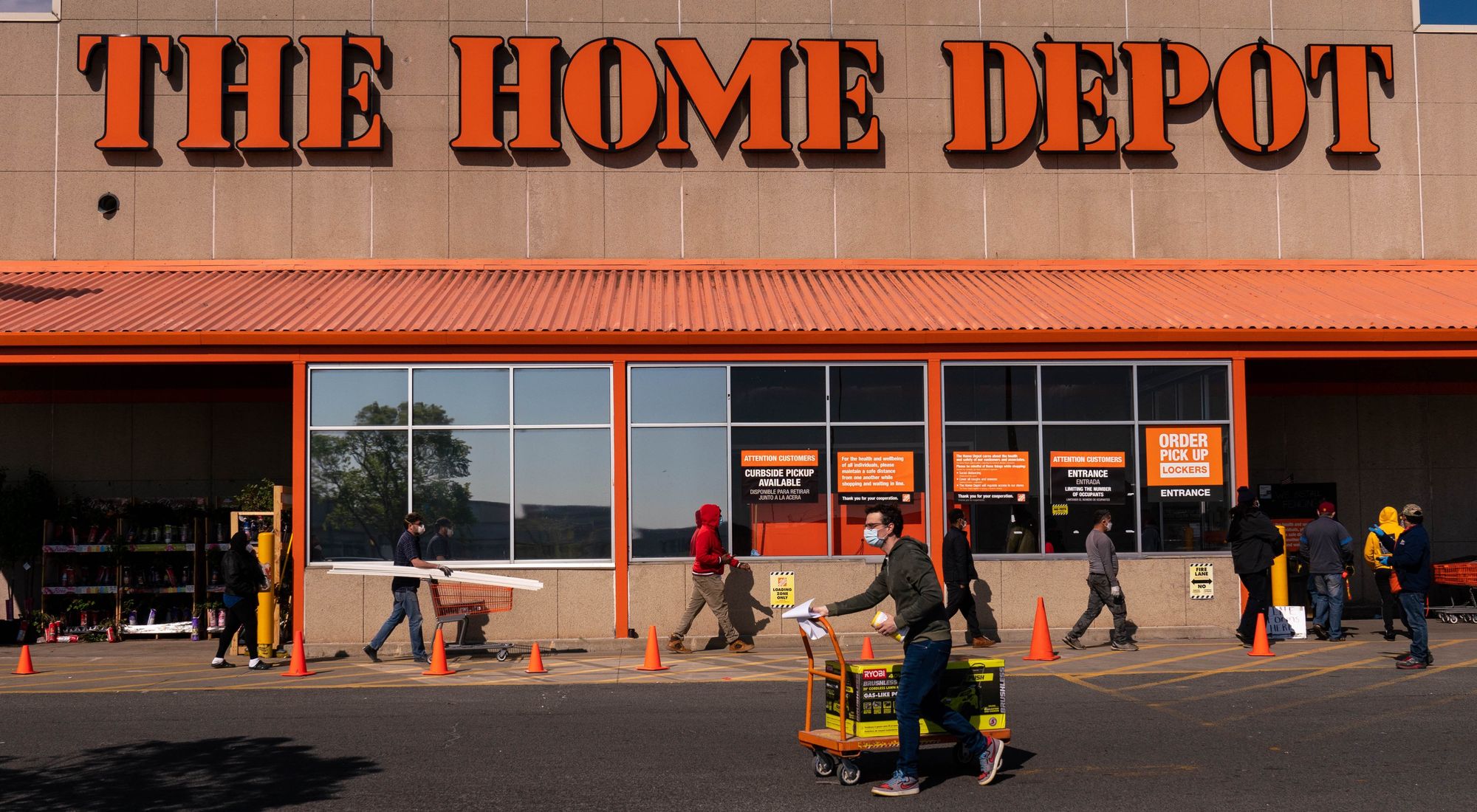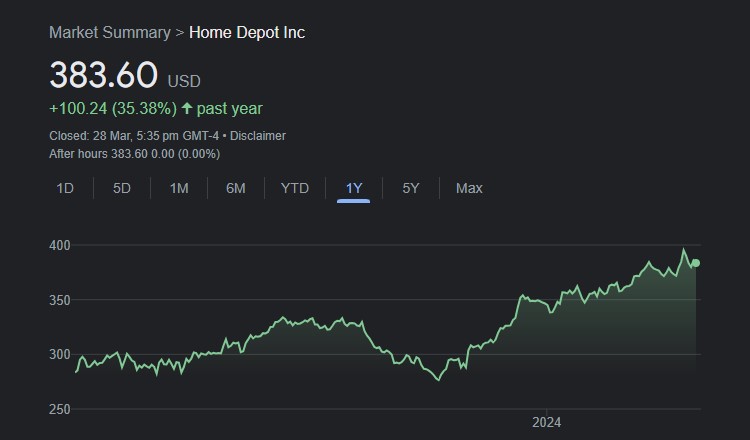Home Depot announced on Thursday its acquisition of SRS Distribution in a substantial $18.25 billion transaction, marking a significant step in its strategy to enhance sales by expanding its presence among contractors, roofers, and other home professionals.
The home improvement giant anticipates finalizing the acquisition within the current fiscal year, slated to conclude in late January. Funding for the deal will be sourced from available cash reserves and debt financing.
Currently, Home Depot derives fifty percent of its revenue from professional customers, with the remaining half attributed to DIY enthusiasts.
With this acquisition, the Atlanta-headquartered company is intensifying its efforts to attract clientele engaged in intricate and financially rewarding construction projects, especially amidst a trend of homeowners scaling back on DIY endeavors.
This objective aligns closely with Home Depot’s stated priorities for the year. Consequently, the company has been augmenting its network of distribution centers designed to stock ample quantities of essential items, such as lumber and shingles, catering specifically to professional requirements and facilitating direct delivery to job sites.
The acquisition stands as the largest in Home Depot’s storied history. CEO Ted Decker, in an interview with CNBC, characterized the deal as “a complementary accelerator” to the company’s ongoing efforts to court more professional clientele.

He emphasized that the acquisition expands Home Depot’s total addressable market by a substantial $50 billion.
SRS Distribution specializes in supplying professionals in the landscaping, pool maintenance, and roofing industries. Currently owned by private equity firms Leonard Green & Partners and Berkshire Partners, the McKinney, Texas-based company boasts approximately 11,000 employees and operates 760 branches spanning 47 states.
Additionally, it maintains a fleet of 4,000 delivery trucks and boasts a dedicated salesforce catering specifically to the needs of home professionals, according to Decker.
This acquisition bolsters Home Depot’s recent strategic moves within the professional sector. Notably, in 2020, the company completed the approximately $8 billion acquisition of HD Supply, a national distributor specializing in maintenance, repair, and operations products tailored for multifamily and hospitality markets.
Furthermore, in the preceding year, Home Depot executed two additional undisclosed acquisitions: International Designs Group, the parent company of Construction Resources, a distributor of surfaces, appliances, and related products serving home professionals, and Temco, an appliance delivery and installation company.
Decker expressed confidence in the approval of the deal by federal regulators, despite heightened scrutiny of mergers and acquisitions. “With the separate customer base, different channels, different purchase occasions, we feel good that this will go through,” he remarked.
Although the acquisition is anticipated to dilute Home Depot’s earnings per share due to amortization, it is expected to be accretive in terms of cash earnings per share within the first year following the deal’s closure.
Home Depot has strategically emphasized its professional business segment amid stagnant growth. As a major beneficiary of pandemic-induced trends, the retailer has grappled with moderating sales as consumers scale back on home projects and allocate more spending towards groceries and experiences.

In recent quarters, customers have exhibited reduced purchases of big-ticket items and focused more on smaller, less costly projects.
Decker highlighted during an earnings call last month that Home Depot’s strategies will pivot towards opening new stores, enhancing pro sales, and optimizing the shopping experience for customers to ensure seamlessness.
During the fiscal year, Home Depot intends to inaugurate a dozen new stores. Additionally, it recently disclosed plans to establish four distribution centers aimed at bolstering sales to professional customers.
This acquisition follows the home improvement retailer’s acknowledgment last month of expectations for continued sluggish sales trends. It foresees total sales for the fiscal year, inclusive of an additional week, to increase by approximately 1%.
However, it anticipates a decline of about 1% in comparable sales, which excludes the impact of store openings and closures and does not account for the additional week.
As of the end of the fiscal year in late January, Home Depot operated a total of 2,335 stores across the United States, Mexico, and Canada, with approximately 465,000 employees.
By the close of trading on Wednesday, Home Depot’s shares had appreciated by around 11% year-to-date, slightly outperforming the S&P 500’s 10% gains. Home Depot’s stock concluded Wednesday’s session at $385.89, resulting in a market capitalization of roughly $382 billion.


